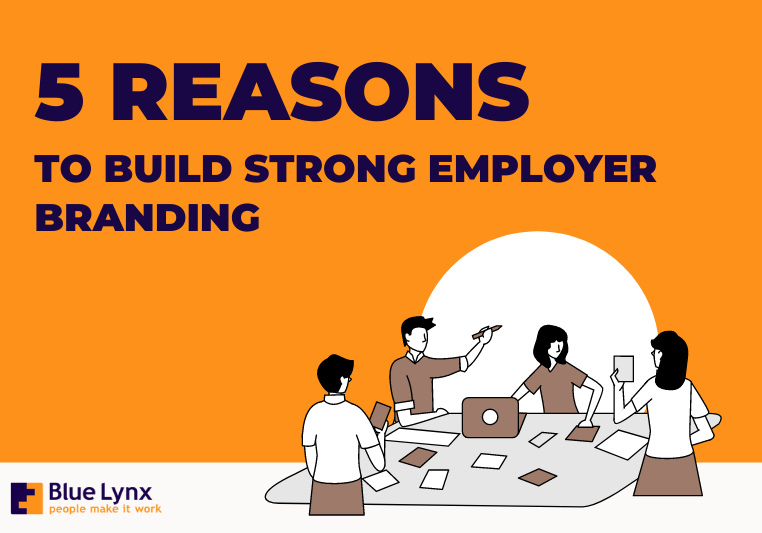Do you know what’s nerve-wracking? Job interviews. Now add being in another country or not having it in your native language, it gets even worse. So you’ve put into practice all the tips you learned from our CV writing article. Now the company wants to meet you. Great! But, what should you know about interviewing in the Netherlands? Keep reading to find out.
What We’ll Cover in This Article
- Typical Job Interview Process
- How to Behave During the Interview
- Asking About Salary
- Job Interview Outfit
- Online Interview Essentials
- Tricky Interview Questions
The Job Interview Process in the Netherlands
Dutch people 101: They usually are blatantly honest and go straight to the point.
Unless… we are talking about their interview culture. Job applications get reviewed relatively slowly here. Usually, they go in several rounds. In the initial interview, the company is just getting to know you. Expect standard interview questions. In some cases, you can get a phone interview as well. If you get to the second round, it means that the employer is considering you for the role. This is when you should make a serious effort to get to know the company and show you have what they are looking for.
How to Behave During an Interview
What to say, what not to say, how to say it
Even though you know your skills and personality will be tested, it’s important to appear confident. You will be openly judged by someone whether you are a good fit. It’s absolutely normal to feel nervous. What to remember:
- Avoid speaking too quickly
- Avoid interrupting the interviewer
- Always ask if you don’t understand the question – use phrases like “If I understood right, you are asking me X/Y/Z” to make sure
- Make eye contact while you are speaking
- Perfect your body language
- Avoid using filler words like “um” and “like”
- Avoid smoking and drinking (unless it’s water, of course)
- Put your phone on silent, you wouldn’t want to be distracted by it in the middle of your interview.
Should You Ask About Salary In an Interview?
The short answer is: no.
Here are some reasons why you shouldn’t negotiate your salary during your interview in the Netherlands:
- Your recruiter should have already told you the employer’s budget for this position
- Salary negotiations show your strongest motivation is money. That’s not favourable with employers.
- Some employers would actually end the interview right then and there.
- You undermine your recruiter’s integrity with the employers. As well as your prospects with the company
- Think like the employer. You will be leaving the wrong impression if you try to negotiate a higher salary at such an early stage.
Job Interview Outfit: What to Wear
The Dutch are all about moderation.
Surely, you want to look your most professional self at the interview. But, it’s important to not overdo it too. It also depends on the type of job, of course. As a general rule, keep away from extremes and apply common sense. Ripped jeans and casual T-shirts are not recommended. Smart-casual (also known as, business casual) wear should be okay.
Online Interview Essentials
With COVID-19 turning our lives around, online interviews became the norm. Even virtual onboarding. And why shouldn’t they? It’s easier for everyone and safer, especially now. Some basic things you should consider. Make sure you:
- Have a good Internet connection
- Test your audio and video beforehand
- Find a quiet and clean space, free of distractions
- Juxtapose yourself against a neutral background
Sit up straight, smile and listen in an active manner. Just as you would do in a non-virtual interview.
Tricky Job Interview Questions: How to Dodge the Bullet?
As mentioned above, the interviewer will start with some basic personal questions. If you are not Dutch, you will probably get a variation of the questions “What brings you to the Netherlands?” But, there will be trickier ones that require some serious preparation.
- Why did you leave your last job?
- What did you dislike in your last job?
- What are your long-term plans?
- How do you deal with conflict?
- Why should we choose you?
See more about each below.
-
What did you dislike in your last job?
You might be tempted to focus on a negative aspect of your last job. If that’s your strategy, consider changing your approach. If you speak ill of your previous employer, what guarantee does the new employer have that you won’t do the same for them? So when you lay down your reasons for leaving your last job, start with what you enjoyed about it and then be honest about what you didn’t. Avoid using adjectives with negative connotations. Let’s see an example.
What not to say: The job was boring.
How to put it during the interview: Over time, I started feeling too comfortable and not challenged enough in my job. My growth was stagnating and I started thinking about a change. I told my line manager about it but the company structure and processes didn’t allow any changes. Even so, I learned a lot from this experience and I’m eager to build on it.
You are ending on a positive note, you show that you tried to work this out and it demonstrates your ambition.
-
What are your long-term plans?
People change all the time. If you have only a vague idea of where you see yourself in the distant future, give a general answer.The bottom line is, it’s okay not to know and the interviewer won’t judge you.
If you still want to answer in a more concrete manner, you can talk about developing your skills in a certain area or growing your network.
-
How do you deal with conflict?
Conflict in the workplace is just as likely as in any other area of your life. The interviewer wants to know how you approach heated situations. Make sure you use examples from the past and how you dissolved an argument. Mention actions you took to avoid it too. Avoid using words with a negative connotation and getting emotional. Remember, the underlying message of each answer should be “hire me”. That’s why when talking about conflict, you need to show your emotional intelligence and a flexible attitude.
-
Why should we choose you?
Have you heard about the elevator pitch? Your answer to this question should be just that. Only that you are not selling a company, but yourself.
Highlight all your key skills, experience, industry knowledge in one summary. With a question like this, the interviewer will be looking at two things.
- How much you understand about the role
- What your personal view on yourself is
You can structure your answer like this: This role needs someone who is [characteristic] as the nature of this job requires [how well you understand the job] and I am your person because [past experience that shows you have what it takes].
If you don’t have any past experience, you can always use your ability to learn fast and your dedication instead.
Still Feeling a Bit Insecure About Your Interview?
It’s absolutely normal. When you find a job through Blue Lynx, our recruiters will help with the interview preparation. They have experience in giving out great advice to candidates. Blue Lynx recruiters spend time getting to know what each of our business clients wants. You will be in safe hands.
Are You an Expat?
Welcome to the Netherlands! One of the best countries to work in. The working culture here is based on balance. Dutch are friendly but very direct. This is sometimes considered rude by other nations. They have a good sense of measure and moderation. The best thing about the Netherlands? People celebrate their differences and are open to foreigners. Did we mention almost everyone speaks English? You will definitely find your place here.
Other articles you might find useful:
How to write a Thank You email after the interview
Write a winning cover letter
How to tell if your CV good enough





![Education vs. experience [Title] Job requirements: Education vs. experience](https://bluelynxcareers.bg/wp-content/uploads/bb-plugin/cache/Job-requirements-education-vs-experience-landscape-1ec43d95a48ad704bd7217ec829c042f-.png)


![Unlocking the Connection between Sleep, Work, and Productivity The Importance of Quality Rest for Optimal Performance [Title] Unlocking the Connection between Sleep, Work, and Productivity The Importance of Quality Rest for Optimal Performance](https://bluelynxcareers.bg/wp-content/uploads/bb-plugin/cache/Unlocking-the-Connection-between-Sleep-Work-and-Productivity-The-Importance-of-Quality-Rest-for-Optimal-Performance-landscape-2b91ccd746800d863e8c65276c6876c9-.png)
![Attracting Talent and Driving Innovation The Role of Sustainability in Modern Business [Headline] Attracting Talent and Driving Innovation The Role of Sustainability in Modern Business [Headline]](https://bluelynxcareers.bg/wp-content/uploads/bb-plugin/cache/Attracting-Talent-and-Driving-Innovation-The-Role-of-Sustainability-in-Modern-Business-landscape-7f26c9342f1650800e5633d1b4424d68-.png)

![Toxic productivity [Title] Toxic productivity](https://bluelynxcareers.bg/wp-content/uploads/bb-plugin/cache/Toxic-productivity-landscape-ce165975805cbbc4b58e4c23cf758014-.png)